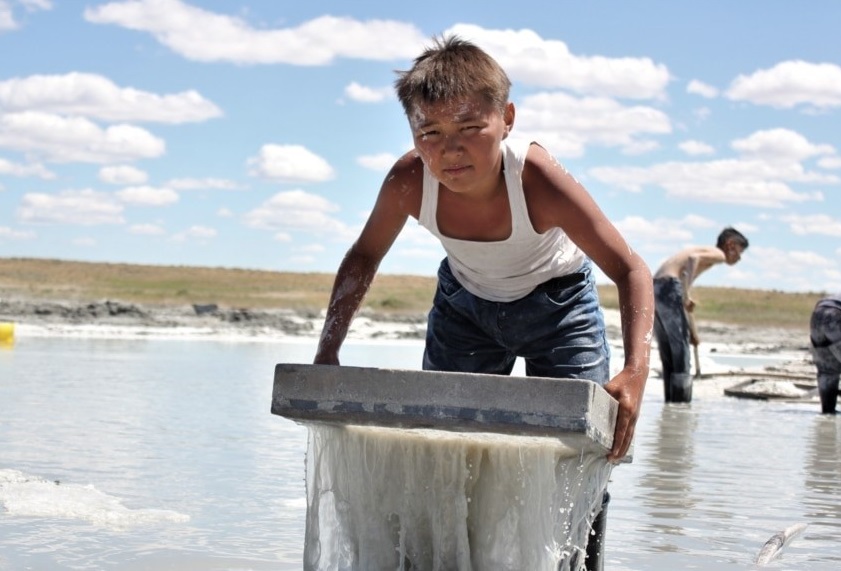Kazakh tradition nominated for an Oscar
Among the films entered in the race for Best Foreign Language Film, a story told by director Kučinčirekov recounts the traumas linked to the ancient custom of entrusting the upbringing of the first or last child to grandparents. It brings to the screen a comparison between the Kazakhstan of the past and that of modern times.
Astana (AsiaNews) - The film by the Kazakh actor-director Askhat Kučinčirekov Bauyryna salu (‘Give it to your brother’, a way of defining ‘adoption in the family’) has been nominated for an Academy Award Oscar for best foreign film.
It tells of the ancient Kazakhstan tradition of entrusting the first or last child to the upbringing of grandparents and grandmothers. The boy protagonist of the film therefore finds it difficult to communicate with his father and mother, erecting a communication barrier against them.
The director describes his work almost as autobiographical, recalling the emotional traumas of loneliness experienced under the care of grandparents, and the story received great praise both at home and abroad.
Already last year, the work won the ‘Best Youth Film’ award at the Asia-Pacific Film Awards in Spain. In Kazakhstan, the film has sparked a wide-ranging debate that pits supporters of family traditions, who argue that younger people should take care of the elderly and distressed relatives, against those who are convinced that separation from natural parents is an unfair and unjustified stress.
According to the old custom, the child is entrusted to the grandparents from the first months after birth, and only when he or she reaches a young age between 15 and 18 is he or she given the choice of continuing to live with them or returning to the parents. In most cases, children continue to stay with their grandparents, considering their birth parents to be ‘strangers’.
The motivation for this tradition was said to be the elderly's greater experience in bringing up children, whereby they were considered to have the right-duty to take care of the first and perhaps also the second and third child, after the end of maternal breast-feeding and even before, to make them worthy members of the nomadic society. Young parents were deemed unfit for this task, at least until they reached a more mature age, and could keep the next children.
In the story recounted by Kučinčirekov, little Ersultan grows up resenting in his heart the abandonment of his parents, of whom he possesses only a faded old photo, which he looks at every day on his way to work in the saltworks.
When at the age of 12 he witnesses the death of his grandmother, he is forced to return to his father's house, and tries to establish a true family relationship with his parents, clashing with the differences of the city lifestyle, after having grown up in a more ‘free and natural’ one on the elders' land.
The atmosphere of the film is rather intimate and meditative, with a very enveloping rhythm dictated by the thoughts of the introverted Ersultan, confronted with the sudden upheaval of his existence.
The director does not directly appear in the film as an actor, but local critics assure that ‘you can feel his presence in every shot’, and even though the practice of grandparental adoption is no longer as widespread as it once was, many Kazakhs have in turn recognised themselves in Ersultan's story, which concerns not only internal family issues and various intergenerational conflicts, but more generally the confrontation between the Kazakhstan of the past and that of modern times, right up to the present day.
Over the past 30 years, a dozen films from Kazakhstan have been shortlisted for the Oscars, two of which, Ermek Tursunov's Kelin in 2009 about zoomorphic and cosmic Turkic mythologies, and Sergej Dvortsevoj's Ajka in 2018, about the life of a Kyrgyz girl who illegally emigrated to Moscow, had made it onto the shortlist of pretenders, but did not win the prestigious award.







.png)










